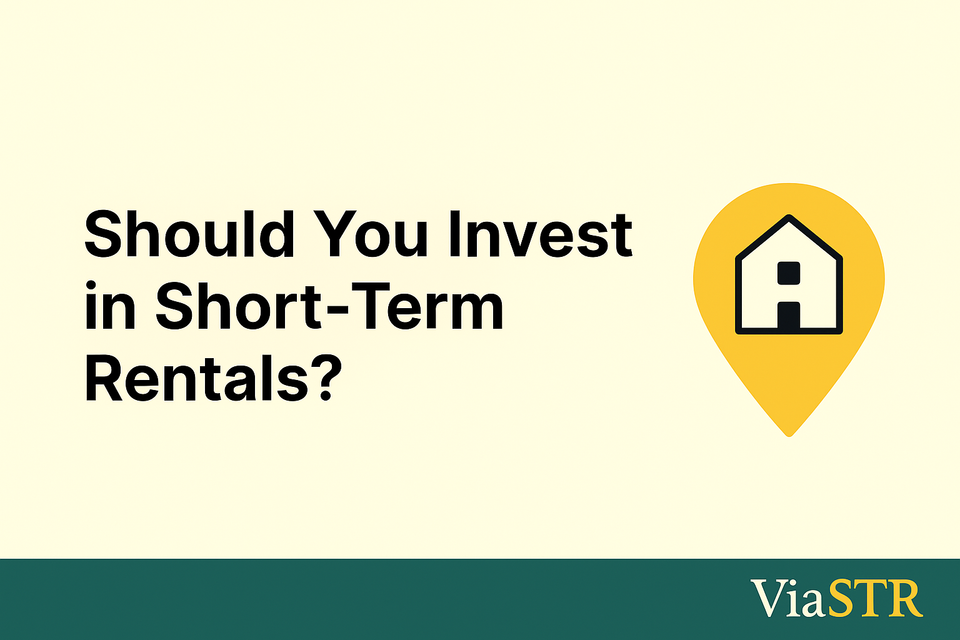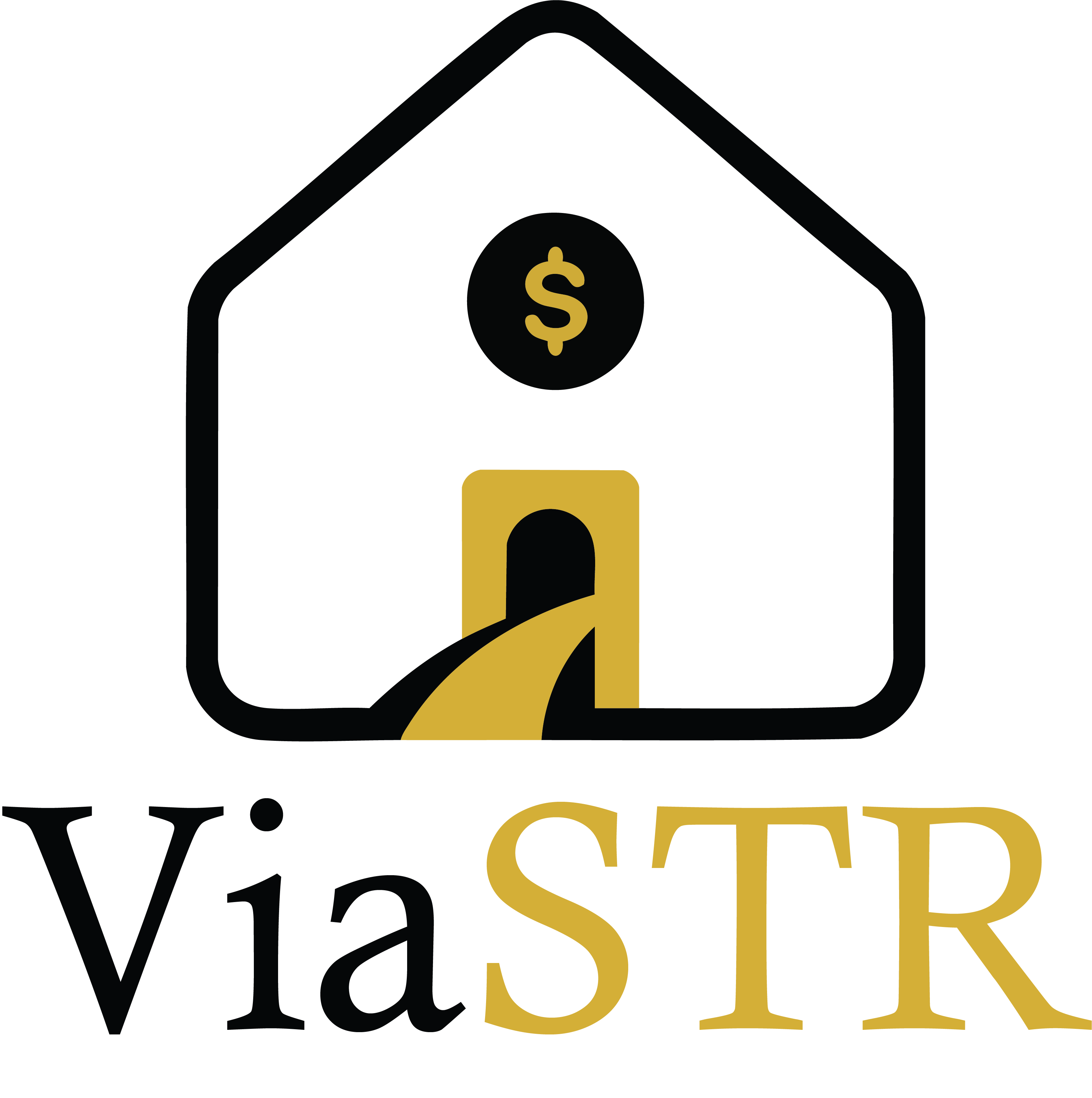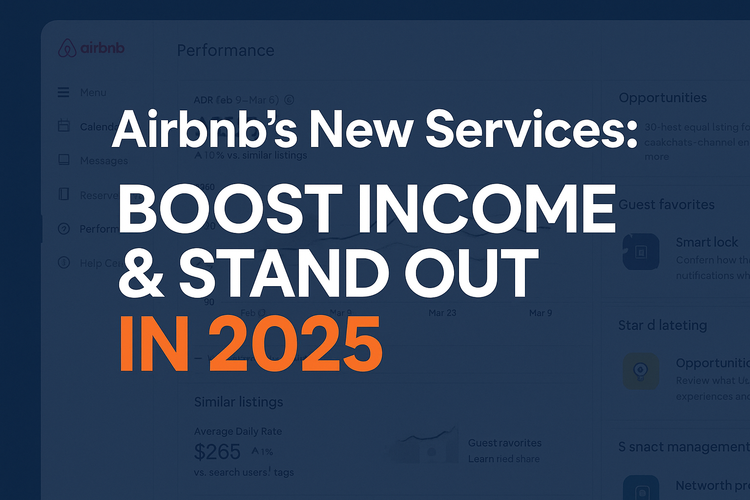Should You Invest in Short-Term Rentals?

If you’ve been wondering whether short-term rentals (STRs) are the right path for building wealth, you’re not alone. Thousands of W2 earners are asking the same question:
“Are STRs worth it for me?”
The truth is that STRs are not a one-size-fits-all investment. The right choice depends on your goals, time availability, and risk tolerance. This guide helps you evaluate whether STRs align with your financial vision — or if another path makes more sense.
At a Glance
- STRs can generate 2–3x the cashflow of long-term rentals (LTRs) in top markets.
- The STR loophole allows W2 earners to reduce their tax bill without qualifying as a real estate professional.
- STRs offer personal use flexibility not available with traditional rentals or stocks.
- They require active involvement or outsourcing — not ideal for completely passive investors.
- This article kicks off the 6-Phase STR Wealth Series for W2 earners.
Why STRs Stand Out
Short-term rentals have become a popular vehicle for wealth-building — and for good reason:
1. Higher Cashflow Potential
In strong markets, STRs often generate 2–3 times the monthly income of LTRs. That means faster ROI and stronger compounding.
According to TheAirbnbDataGuy, top-decile STRs in vacation markets can earn over $100,000 per year — off single units.
2. Flexible Personal Use
Unlike traditional rentals or stocks, you can use your STR when you want — for family trips, holidays, or even as a backup home base.
3. Tax Savings via the STR Loophole
If you materially participate in managing your STR (even part-time), you may qualify for bonus depreciation and cost segregation strategies that offset your W2 income — a unique advantage.
For a breakdown of how this works, read: The STR Loophole Explained
Who STRs Are Right For
You may be a great candidate for short-term rental investing if:
- ✅ You earn a high W2 income and want to reduce your tax burden.
- ✅ You want cashflow now, not just long-term appreciation.
- ✅ You’re willing to manage or outsource cleaning, maintenance, and guest messaging.
- ✅ You have 10–20% down and a cushion for furnishing and launch costs.
- ✅ You’re open to learning — or hiring help — in hospitality, marketing, and STR-specific tools.
Many ViaSTR members fit this profile. They’re doctors, sales executives, tech professionals, and small business owners looking for lifestyle-aligned wealth-building.
Who STRs May Not Be Right For
On the other hand, STRs might not be your best option if:
- ❌ You want a truly hands-off investment (like REITs or index funds).
- ❌ You’re not interested in real estate or hospitality at all.
- ❌ You live in a market with strict STR bans or permit limits.
- ❌ You don’t have the financial buffer for potential slow seasons or unexpected repairs.
If your goal is set-it-and-forget-it investing, STRs might frustrate you. But if you’re willing to be hands-on — or build a system — the payoff can be immense.
The Bottom Line
Short-term rentals are one of the rare investment types that combine:
- 📈 Cashflow
- 🏠 Equity growth
- 🧾 Tax reduction
- 💼 Business-building skills
- 👨👩👧 Legacy potential
But they’re not for everyone.
Start by asking:
“Do I want to actively participate in my financial future — and create a lifestyle business that pays me back?”
If the answer is yes, you’re in the right place.
What’s Next?
This article is the first post in the 6-Phase STR Wealth Journey, designed specifically for W2 earners who want to build financial independence with STRs.
👉 Next up in this series (members-only):
The Mindset Shift Every W2 Earner Needs Before Investing in STRs
See Also
- The STR Loophole Explained
- Building Your STR Vision: From Financial Goals to Generational Wealth
- How to Choose the Right Market for Your STR



